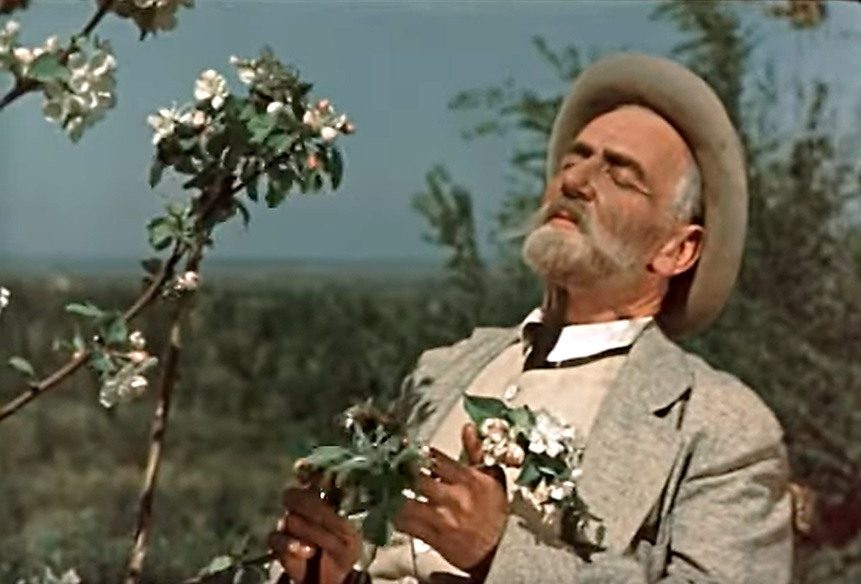![]()


![]()

![]()
■ The title of this chapter "Earth Instead of Stalinism" is derived from "Muddle Instead of Music", the title of the critical article ( 1936 ) in Pravda on Shostakovich's opera, Op. 29 "Lady Macbeth of Mtsensk". Although this critical article is unsigned, the intensity of the criticism is said to strongly reflect Stalin's indignation at seeing this opera. At the very least, reading the article, Shostakovich was shocked to realize that this was Stalin's opinion. Solomon Volkov speculates that even if this article was written by someone else, it must have been the dictation of Stalin's own opinions.
■ Here, we are trying to criticize Stalinism, which made Shostakovich the target of criticism, in reverse. However, the nuances of both titles are slightly different. Stalin was merely criticizing Shostakovich's opera in the sense that it was vulgar things that was no longer even music. In contrast, the title of this chapter extracts Shostakovich and Dovzhenko's vague image by insisting on Earth as the clear versus alternative to Stalinism. Shostakovich and Dovzhenko seek to return to the collective experience of the Russian Revolution by representing proto-communism as Earth against Stalinist communism.
■ The following is the festive scene inspired by the fact that Michurin was actually awarded the Order of Lenin by Stalin in 1931, but it is necessary to watch carefully here ( 59 ). First and foremost, it emphasizes the difference that Michurin seems very serene and deeply moved, in contrast to the joyful expressions of the people around him. It shows that while the people around him are excited about the award of the medal from Stalin, Michurin's thoughts turned to another person.
■ Needless to say, another person is none other than Lenin. Looking closely, Mitchurin addresses his acknowledgment for the award of the medal to Lenin, not Stalin. He is speaking to the now deceased Lenin, that Stalin gifted him with the medal on your behalf. It means that Michurin still remembered his gratitude to Lenin for finding him.
■ However, it should be added here that Dovzhenko dislikes the flesh and blood of Stalin and does not admire the flesh and blood of Lenin. Dovzhenko is here merely making the assessment of the symbolism of the leader in communism for the collective people. What fascinates Dovzhenko here is Dialectical Development in History that the singular existence of Leader is the great human figure that symbolizing the collective existence which Human has formulated in the history. Dovzhenko believes that People need the human figure of Leader, and that this figure is none other than Lenin. So, it should be considered that what he criticizes is only the repressive political system referred to as Stalinism.
■ Shostakovich also said the following about Lenin in his autobiography,
"Now I am more and more seized with the idea of creating a work in the image of Lenin's immortality."
"Obviously, however, the work of embodying the greatest human figure in the most complicated times requires the strain of all creative powers."

■ Michurin speaks at the festive parade for the awarding of the Order of Lenin. Michurin, speaking amidst the people and red, which here should be the symbolic color of the Bolsheviks rather than the communist color, is depicted as if he is no longer a scientist but the revolutionary, that is, superimposed on Lenin.
■ In this short speech, Michurin metaphorically states that the people are drowning in the current political repression and concludes his speech with the slogan-like appeal to go to Earth in the attempt to say that politics should be more toward the people.
■ Whether Shostakovich or Dovzhenko, these traces of secret resistance under such severe censorship mean that they continued to try to embody zeitgeist in which they actually lived through their art. It was the great attempt to capture the thing that the Zeitgeist, which transcended the state politics of those in power, had emerged in the world we lived .
■ In other words, it can be said that Dovzhenko and Shostakovich unconsciously tried to revive the communist ideology, which had been degraded by Stalin into the oppressive mechanism in state politics, as the original form for the unity of the people that was revealed during the Russian Revolution, as the form of Zeitgeist that transcended the state ( The ultimate consequence of Lenin's thinking was the abolition of the State ).

![]()

![]()